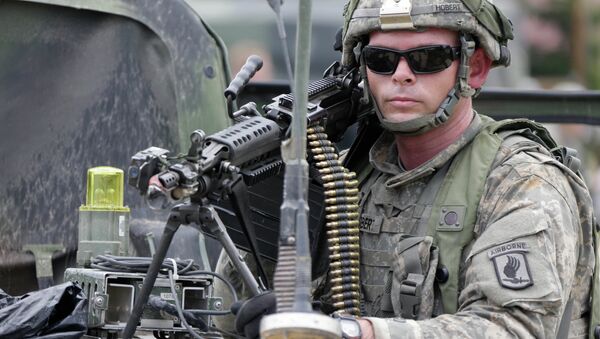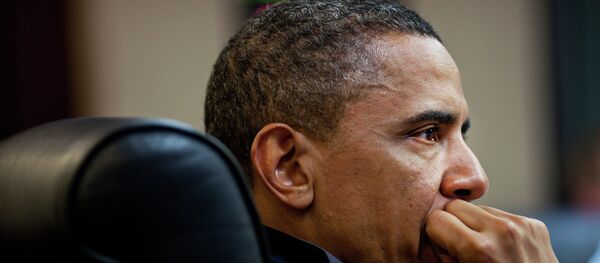And what makes matters even worse is that Washington in its confrontation with Moscow over Ukraine has obviously chosen the "wrong" side by establishing an alliance with neo-Nazi and Islamist collaborators. Indeed, the Chechen Islamists have recently made an announcement that they want to join Ukrainian ultra-nationalists and neo-Nazis in order to wage a joint war against Russia.
"For official Washington, the Ukrainian ally it has embraced is buttressed by a coalition of Islamic militants and neo-Nazis, along with the various elite ethnic Ukrainians who have learned that milking the increasingly lush Washington-Kiev connection can be lucrative," McConnell pointed out.
"NATO has ramped up its war gaming in the Baltic Sea, conducting a large military exercise called BALTOPS involving 5,600 troops and 50 warships. Doesn't sound like that much, but perhaps Americans should contemplate how they would feel about a comparable Chinese or Russian exercise in the Caribbean," the journalist underscored, adding that other maneuvers all amounting to about 20,000 NATO troops were launched by the US in the territory of former Warsaw Pact states.
Posing the question why Washington is adding fuel to the fire of Russo-American tensions, the journalist noted that just three years ago Obama mocked Mitt Romney who was beating the war drums about "the Russian threat."
"How did we arrive at this strange place-a de facto alliance with neo-Nazis and Chechen Islamists-waging a proxy war against Moscow on Russia's border, while a docile media and one-note political class sounds a continuous alarm about Russian aggression?" McConnell asked.
Remarkably, Samuel Huntington, an influential American conservative political scientist, adviser and academic, said:
"The years since the end of the Cold War have seen intense, wide-ranging, and confused debates about American national interests… Efforts to define national interest presuppose agreement on the nature of the country whose interests are to be defined. National interest derives from national identity. We have to know who we are before we can know what our interests are."
"If there is no Cold War, the rationale for major [US] programs and initiatives… disappears," Huntington stated.
The academic quoted Gorbachev's adviser Georgiy Arbatov who warned Americans: "We are doing something really terrible to you — we are depriving you of an enemy." The post-Cold War world may deal a heavy blow to the American national identity, Huntington hinted, suggesting that the United States would need a new external enemy to mitigate its internal split.
So, what if "America somehow needs Russia as an enemy for its own sense of self?" McConnell asked rhetorically.





